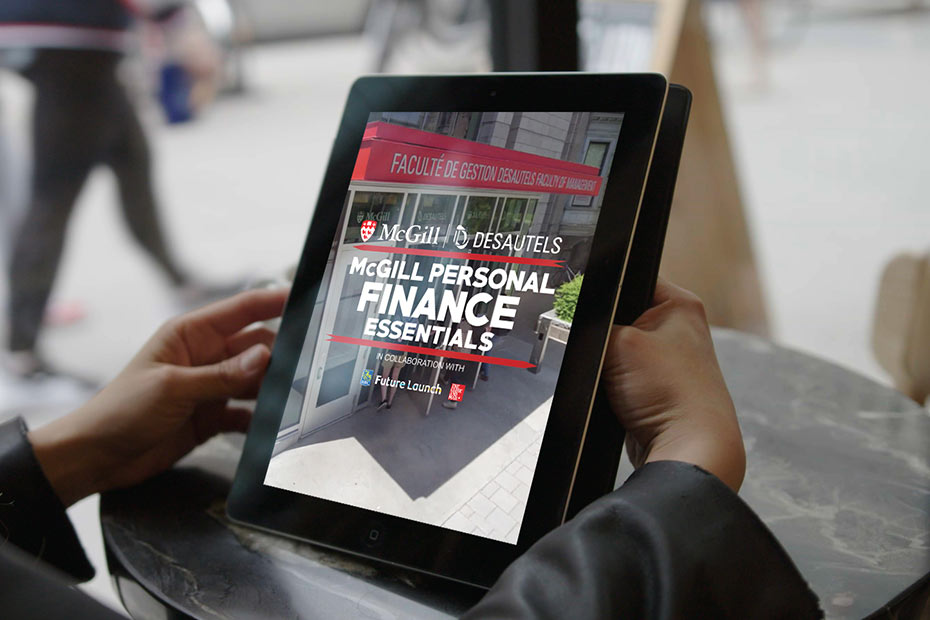Published October 31, 2019 • 3 Min Read
And while the numbers have been buzzing around for years, they only tell half the story. The missing chapters: Why do so many of us lack the necessary financial skills to make informed decisions about personal finance?
Simply put, we haven’t been taught them. Financial literacy isn’t an innate skill – we don’t naturally know how to create a budget, evaluate credit options or form a retirement plan. And we don’t put as much focus on those skills as we do on physical fitness, mental well-being or eating right. Like most skills in life, financial literacy has to be learned – the problem is, hardly anyone has been teaching it.
When it comes to making decisions about their finances and their financial well-being, many Canadians deal with uncertainty and a lack of confidence” said Neil McLaughlin, Group Head, Personal & Commercial Banking, RBC. “By providing the right information and tools to understand their personal financial situation, we hope to help more Canadians make sound financial decisions for themselves and their families now and into the future.”
This lack of knowledge – compounded with rising student debt, the high cost of real estate and a financial landscape that’s chock full of complex product options – makes financial security and confidence difficult to achieve.
The Need for Financial Education
So where can we learn the skills that are crucial to capably managing our finances? Enter the McGill Personal Finance Essentials program. To help Canadians better understand their personal finances, McGill University’s Desautels Faculty of Management has collaborated with RBC Future Launch and the Globe and Mail to increase access to, and deliver personal finance education to all Canadians across the country for free.
“General financial wellness plays an enormous role in ensuring long-term success,” says Isabelle Bajeux-Besnainou, Dean and Professor of Finance at McGill University’s Desautels Faculty of Management.
Recognizing that the language, details and choices associated with personal finances are overwhelming, however, she recognizes that it’s easy for Canadians to tune out. The McGill Personal Finance Essentials program is therefore designed to cut through the noise, confusion, guilt and anxiety Canadians are experiencing and reach them with an accessible yet comprehensive learning plan.
“By democratizing access to ensure individuals have the right knowledge and tools to understand their personal financial position, we are enabling Canadians to make better financial decisions now and into the future,” adds McLaughlin.
Online, free and available to anyone interested in improving their financial skills and knowledge, the McGill Personal Finance Essentials program offers eight individual learning modules taught by McGill University professors – covering debt to investing, budgeting to real estate. And with a module dedicated to behavioural finance, Canadians can understand the reasons behind some of the financial decisions they make, and the implications these decisions have.
The modules consist of one or more sequential videos with a test based on the material at the end of each one.For those who complete each module – and pass each of the associated tests – a McGill Personal Finance Essentials attestation of course completion will be awarded.
Whether you’re approaching retirement, just out of school, looking to buy a home, basic financial skills are necessary to achieve the goals you have in life. And it’s never too early – or too late – to learn them.
Easy access to financial fundamentals will allow Canadians of all walks of life build a strong financial foundation, and improve their relationship with money.
The best investment you can make is an investment in yourself. So let’s get started!
Dean Bajeux-Besnainou
This article is intended as general information only and is not to be relied upon as constituting legal, financial or other professional advice. A professional advisor should be consulted regarding your specific situation. Information presented is believed to be factual and up-to-date but we do not guarantee its accuracy and it should not be regarded as a complete analysis of the subjects discussed. All expressions of opinion reflect the judgment of the authors as of the date of publication and are subject to change. No endorsement of any third parties or their advice, opinions, information, products or services is expressly given or implied by Royal Bank of Canada or any of its affiliates.
Share This Article






